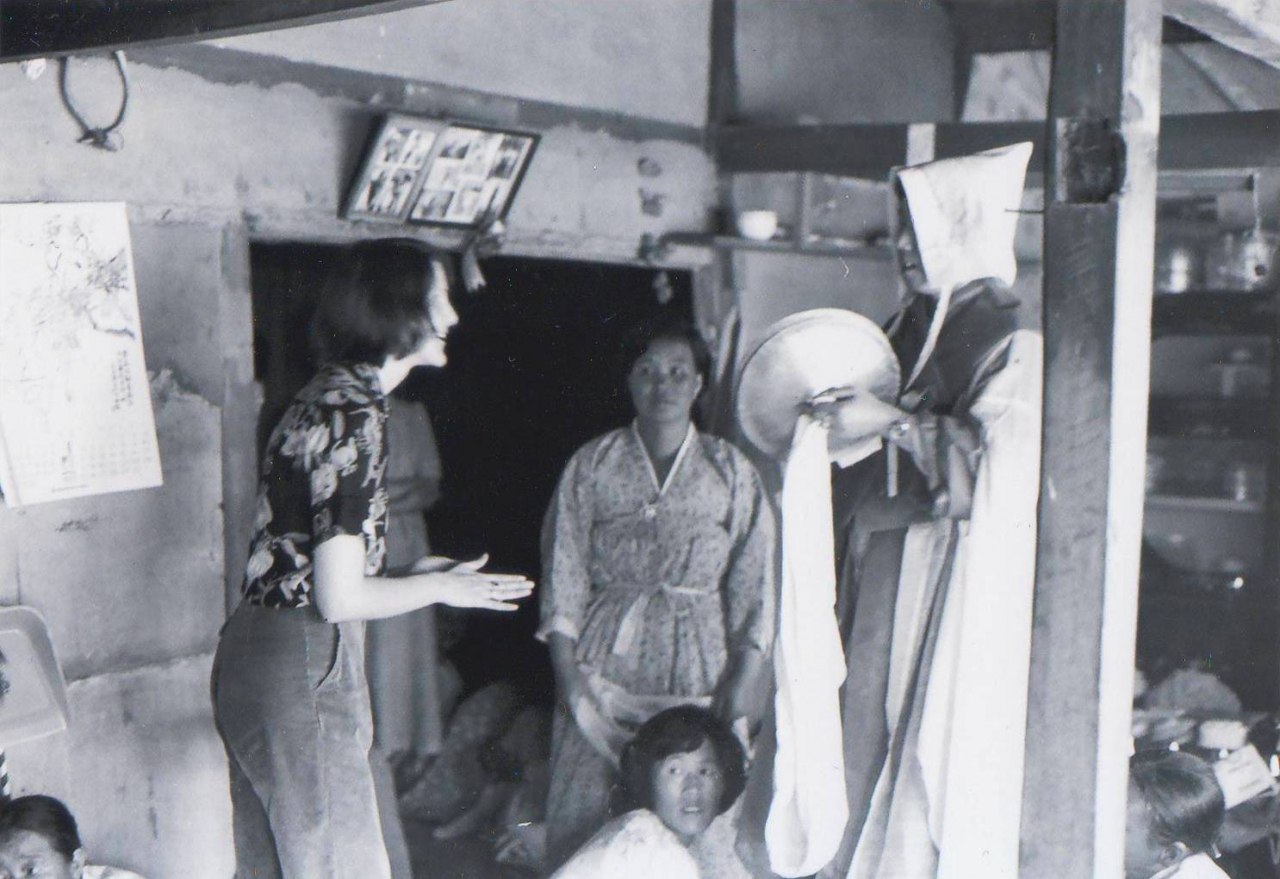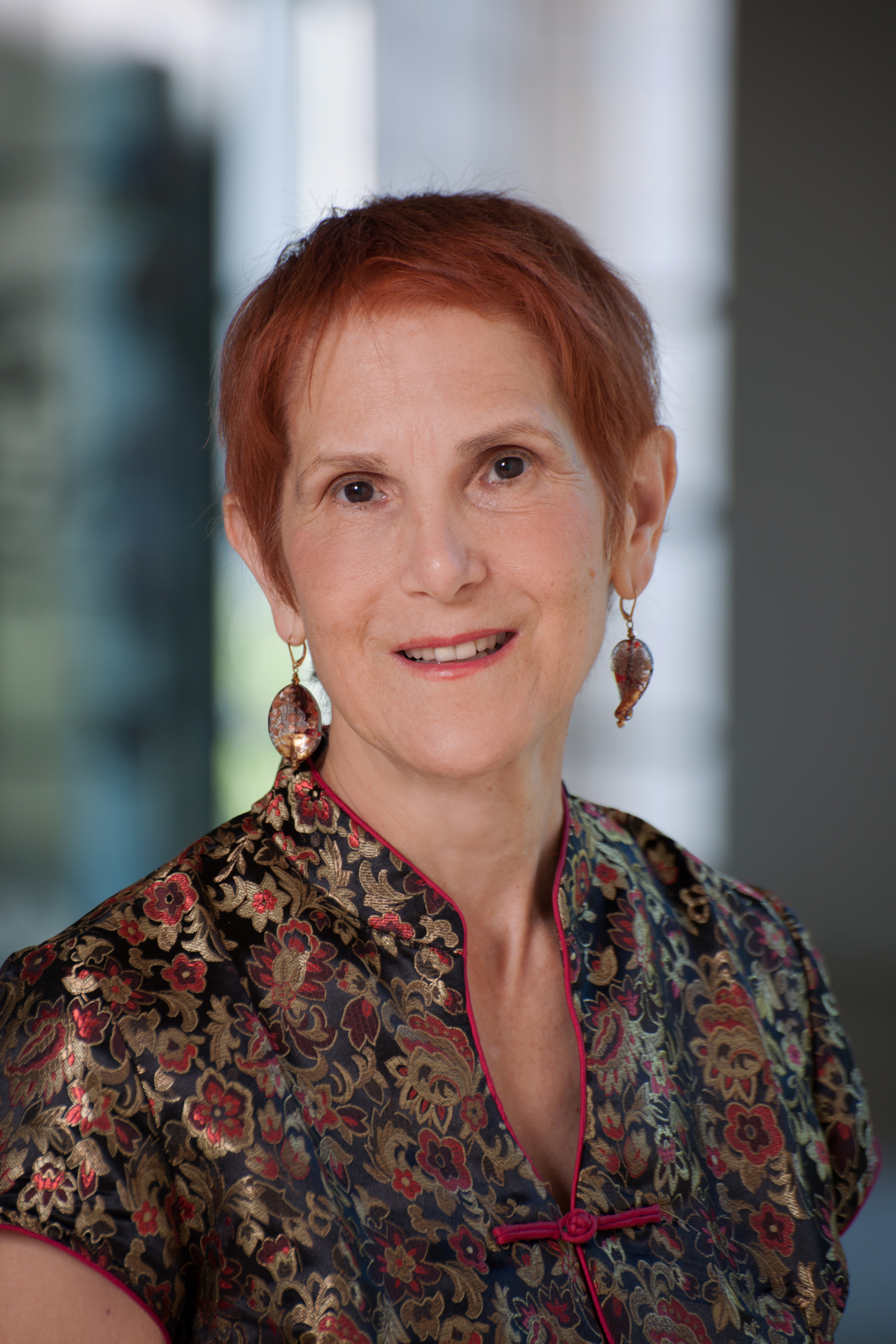[Korea Beyond Korea] Anthropologist stresses multidisciplinary approach for strong Korean studies
Columbia anthropology professor, Asian ethnography curator studied Korean shamans, intrigued by small group's fight to preserve traditional culture in 1970s
By Kim So-hyunPublished : Nov. 7, 2023 - 08:23

NEW YORK -- Portrayals of shaman rituals or shrines in Korean dramas often give off a spooky or menacing vibe.
But 22-year-old Laurel Kendall felt none of that when she first encountered a shaman ritual, or “gut,” in the early 1970s in rural Korea.
“I was struck by how vibrant, colorful and exciting it was. The place was packed, and it was of course very intense,” the adjunct professor of anthropology at Columbia University and curator of Asian ethnographic collections at the American Museum of Natural History said in an interview with The Korea Herald.
A Peace Corps volunteer at the time, Kendall climbed mountains, studied a traditional mask dance called the Bongsan Talchum and followed the older women in her group to attend a ritual performed by shamans from the Hwanghae region of North Korea.
“To my surprise, women were at the center of it all, wearing robes and speaking as gods. Other women in front of them were engaging with the gods. For once, men were in the background," she recalled.
At one point, the shaman, as the god, walked toward a man in the corner, pulled him by the ear and gave him a tongue-lashing. Everyone was laughing.
“I thought, 'I can study this,'” said Kendall in her office at the museum. In high school, Margaret Mead’s book “Male and Female” had led her to pursue anthropology.
She spent three years in Korea, and her path was set.
Fascinated by the operation of gender in Korean popular religion, she has worked with and written about Korean shamans for nearly 30 years.
“Unlike in the world today where people go to 'gutdang' (ritual spaces) with just their sister or mother or best friend, in the village world, everyone would be at the gut. There would be a chorus of women talking back to the gods and supporting the sponsors (of the gut). They’d be the ones saying that a shaman is good or bad,” she said.
She also studied how weddings had changed over time in Korea as notions of gender, such as what a good woman or man is, gradually changed. She wrote about this topic in her 1996 book, “Getting Married in Korea: Of Gender, Morality, and Modernity.”

When Kendall first arrived in Seoul in 1970, the city was dingy and shabby compared to Hong Kong, where she had spent her junior year.
“What would have been interesting and beautiful was torn down. The Korean countryside, on the other hand, was interesting,” she said.
She was intrigued by the ways some Koreans were fighting to preserve traditional culture such as talchum and onggi (earthenware).
“There were people who tried to protect shamans. Scholars were very active in saving things and trying to convince people of the value,” she said.
Although in the '80s, there was a big movement to protect "minjung munhwa (the people’s culture)," this was not the case in the '70s, she said. Only a small committed group was involved at the time, she said.
“In China, Japan and Korea, modernity became an ideology, and they considered things like superstition and shamans anti-modernity. Handicraft was marginalized. Then people thought some things need to be preserved, and talked about what’s worth preserving.”
A good Korean studies program encourages multidisciplinary research, Kendall said, adding that it is also important to know what your fellow anthropologists or other scholars are doing in other countries like Japan, China or Vietnam.
“For instance, if you want to study shrinking families in Korea, you should know what people are saying about China’s shrinking families. You need to be able to have conversations with colleagues in other places,” she said.
“Korean Studies Beyond Korea” explores the current landscape of Korean studies through interviews, in-depth analyses and on-the-ground stories told from diverse world areas. Funded by the Korea Press Foundation, this series delves into the challenges and opportunities facing the field as Korea's rise as a cultural powerhouse has drawn interest from scholars, researchers and leaders from around the globe. – Ed.



















![[Today’s K-pop] Treasure to publish magazine for debut anniversary](http://res.heraldm.com/phpwas/restmb_idxmake.php?idx=642&simg=/content/image/2024/07/26/20240726050551_0.jpg&u=)